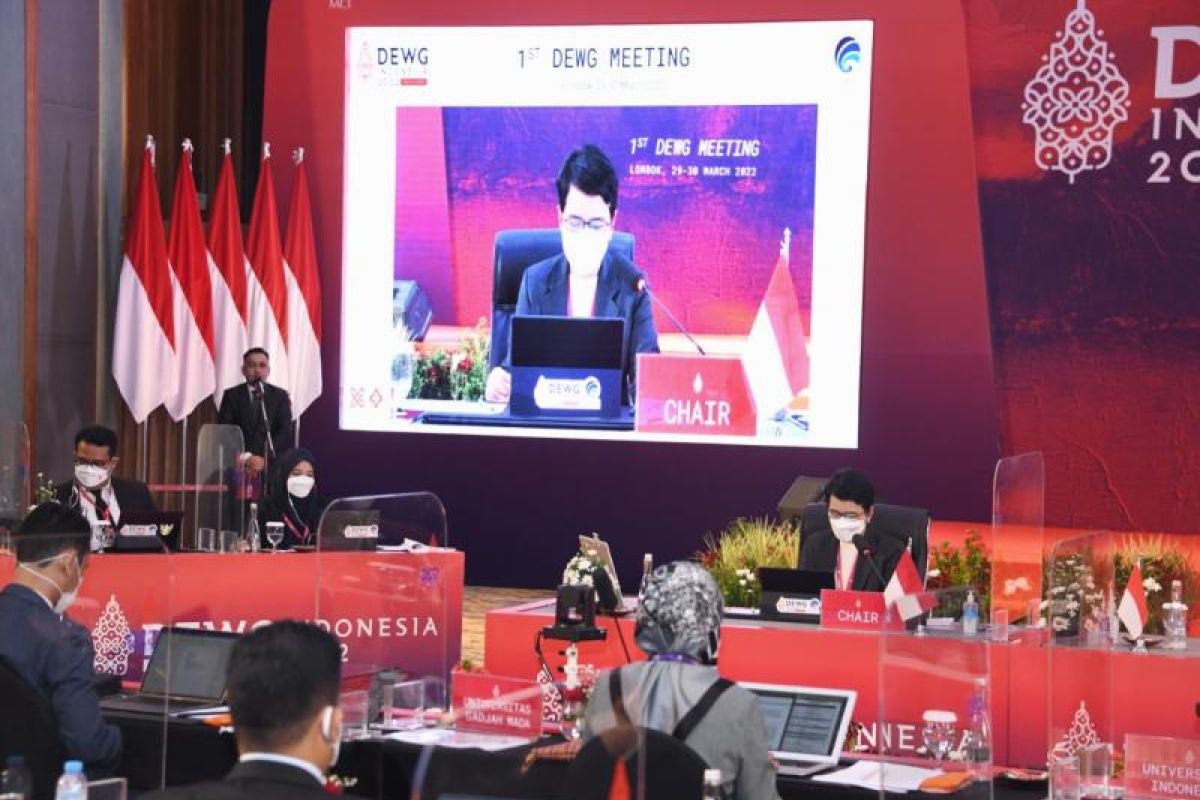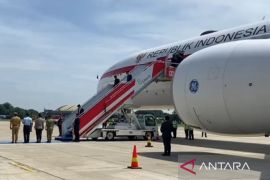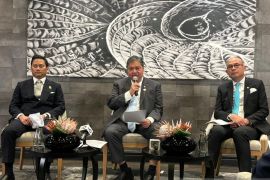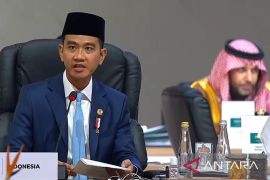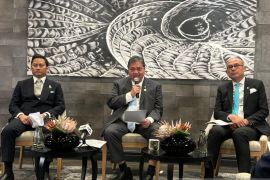If the surveillance is more advanced, it can be prepared to face the possibility of other pandemics in future.
Hence, pandemic surveillance should be supported by an integrated system with accountable and detailed global data. The data must always be updated based on research findings and innovations from various parts of the world.
The integrated system in a single global platform can facilitate collaboration and ease the health sector in identifying, determining, and discovering diseases and new drugs.
In realizing the single health global platform, the role of Technology 4.0, such as artificial intelligence, big data, and the Internet of Things (IoT), is required.
The Indonesian G20 Presidency can encourage the establishment of a future pandemic surveillance system based on Technology 4.0. This is in line with the endeavors to build a global health architecture, as one of the priority issues of Indonesia's G20.
The role of Technology 4.0 in the surveillance system can also upgrade global health resilience.
The analysis that is based on artificial intelligence (AI) can support much faster health findings and predictions. However, that must be equipped with the readiness of data and figures of the real on-field conditions.
Related news: Foreign Affairs Ministry urges NTB youth to support G20 Presidency
Hence, AI intervention is expected to become a positive input for decision-making in anticipatory actions and strategies for health interventions and disease control.
Those health monitoring efforts are aimed at ensuring the availability of epidemiological data and information as the foundations for decision-making in health management. One of the surveillance priorities that need to be developed is diseases that can be prevented by immunization.
According to Chairman of Artificial Intelligence Research and Innovation Collaboration (Korika), Hammam Riza, the technology of ABCD (Artificial Intelligence, blockchain, cloud, data science) and IoT will be the key technology in future.
All forms of emerging technologies will be used in monitoring the pandemic. Emerging technologies will fully utilize each unique feature and integration.
Using the ABCD tech and IoT, health observation will be conducted across countries, regionally and globally, so that the entire world community will be united in a single surveillance solution.
Moreover, the surveillance platform will be furnished with AI robots to help everyone.
Related news: G20: Indonesia supports private sector in environmental funding
The development of AI is also crucial to studying genetic data, detecting diseases, and studying the health behavior and risks of people. All of these three observations provide deep insights, both for health workers and individuals.
Furthermore, in personal medication, AI can adjust the use of pharmacogenetics. To increase the participation of patients or medicine takers, information and insights are presented to them according to each level of understanding of AI.
Data availability
One of the important factors in making the implementation of AI in pandemic surveillance possible is the availability of health data.
The health data includes genomic data of viruses and other microorganisms, for instance, the SARS-CoV-2 virus and its variants that cause the COVID-19 pandemic. Another necessary data is related to disease management and mitigation.
Hammam Riza, an expert engineer at the National Research Center for Artificial Intelligence and Cybersecurity of the National Research and Innovation Agency (BRIN), emphasized that data should be integrated and connected into one global platform, thereby making it easily accessible to researchers and developers.
He explained that the availability of data sets can improve better application of artificial intelligence. Hence, datasets must be transparent and shared among several global institutions and parties.
To maintain data security, blockchain technology can prevent data abuse, so the objective behind conducting health surveillance is solely for global public health.
According to Head of BRIN, Laksana Tri Handoko, AI, big data, and IoT have the potential to help analyze a large amount of data quickly and more accurately, regardless of the object.
However, Handoko noted that these capabilities depend on the availability of data, where a lot of data and its multidimensional substance becomes big data. Hence, it is important to consistently and systematically record, store, and organize the data generated from each existing process.
In relation to health, the data readiness of patients ranges from the lowest grade health facility to the highest. Moreover, demographic data and the collection of health problems are part of the components in making the data set available.
"This is our challenge to be able to synergize together to become a data source while ensuring its interconnection," Handoko affirmed.
The BRIN said it has prepared data and infrastructure related to the biological and genetic resources, which could be the primary data source of the entire system.
BRIN is also committed to providing big data infrastructure at the Serpong Science and Technology Research Center (Puspiptek) located in South Tangerang, Banten, and Cibinong Science Center in Bogor, West Java, to be used together with the Indonesian Health Ministry.
Chairman of the Indonesian Sciences Academy (AIPI) Professor Satryo Sumantri Brodjonegoro viewed that pandemic surveillance in the future will be more effective by using AI, big data, and IoT. However, he argued, it will only work if complete, comprehensive, and reliable big data is available.
All scientific data and facts must be incorporated into the system, he stated. In addition to ensuring big data is accessible, it is also important to develop an AI platform capable of responding to several applications.
"The system and role of technology 4.0 are very important because of the increasingly complex and uncertain future," Brodjonegoro stated.
Related news: Harmonizing health protocol standards expected to help boost mobility
Exchanging the research findings on viral genome data; identifying causes of health problems; conducting disease diagnoses and their preventive measures; preparation and response to health crises should be done to support quality pandemic surveillance.
Through collaboration, synergy, and commitment from parties across countries in sharing science and technology data, a reliable global pandemic surveillance system can be certainly established.
It is time for all countries to assist one another in building a pandemic surveillance system. Thus, all countries can become more resilient and ready themselves in case of another emergence of infectious diseases that might turn into a pandemic in future.
In helping to make a platform for that, the Indonesian G20 Presidency is expected to initiate and invite international communities to develop an AI-based single global platform for the sake of a stronger public health system.
Related news: Bali airport holds GSE ramp check ahead of G20 Summit
Related news: G20 JFHTF to draft pandemic preparedness and response action plan
Editor: Fardah Assegaf
Copyright © ANTARA 2022
